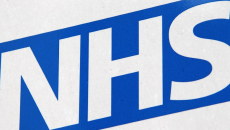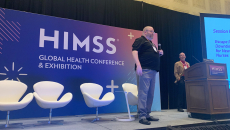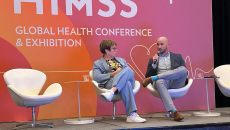Workflow
Artificial intelligence agents coordinating tasks across healthcare workflows were the talk of HIMSS25. In the year ahead, AI is expected to progress cautiously beyond ambient listening to effect new automation in electronic health records.
UK Prime Minister Keir Starmer said the organization will be reintegrated into the UK Department of Health and Social Care within two years. The agency pledges to reinvest cost savings into frontline services.
Nursing and IT
Nurses with less than two years of experience increase their confidence in performing during electronic health record outages after escape room-style training, Michael Allen of Indiana University Health said at HIMSS25.
An Australian study also found that AI can help reduce readmissions.
Chad Dodd, vice president of product management at athenahealth, sat down with MobiHealthNews to discuss Ambient Notes and how the company's AI-enabled products have evolved.
Technology and business operations leaders from Medical University of South Carolina offered some useful tips and strategies on collaboration, continuous improvement and more at HIMSS25 on Wednesday.
Dr. Colin Banas of DrFirst says AI innovations, for one thing, are eliminating long hold times and back-and-forth calls between providers, insurers and pharmacies – easing frustration and giving patients greater control over their care.
So says Artisight CEO Andrew Gostine. Hospitals of the future will rely on real-time data capture, predictive analytics and intelligent automation to scale care while improving both the patient and clinician experience, he adds.
At HIMSS25, Halima Ahmadi-Montecalvo, vice president of research and evaluation at Unite Us, talks social determinants of health program design that drives ROI. She also offers technology tips for show attendees.
At HIMSS25 Denise Dauterman, Epic Clinical Systems Lead and Deborah Jacques, informatics nurse specialist, will share how they engaged nurses in implementing EHR modules that reduced redundant and non-meaningful documentation at NYU Langone Health.








